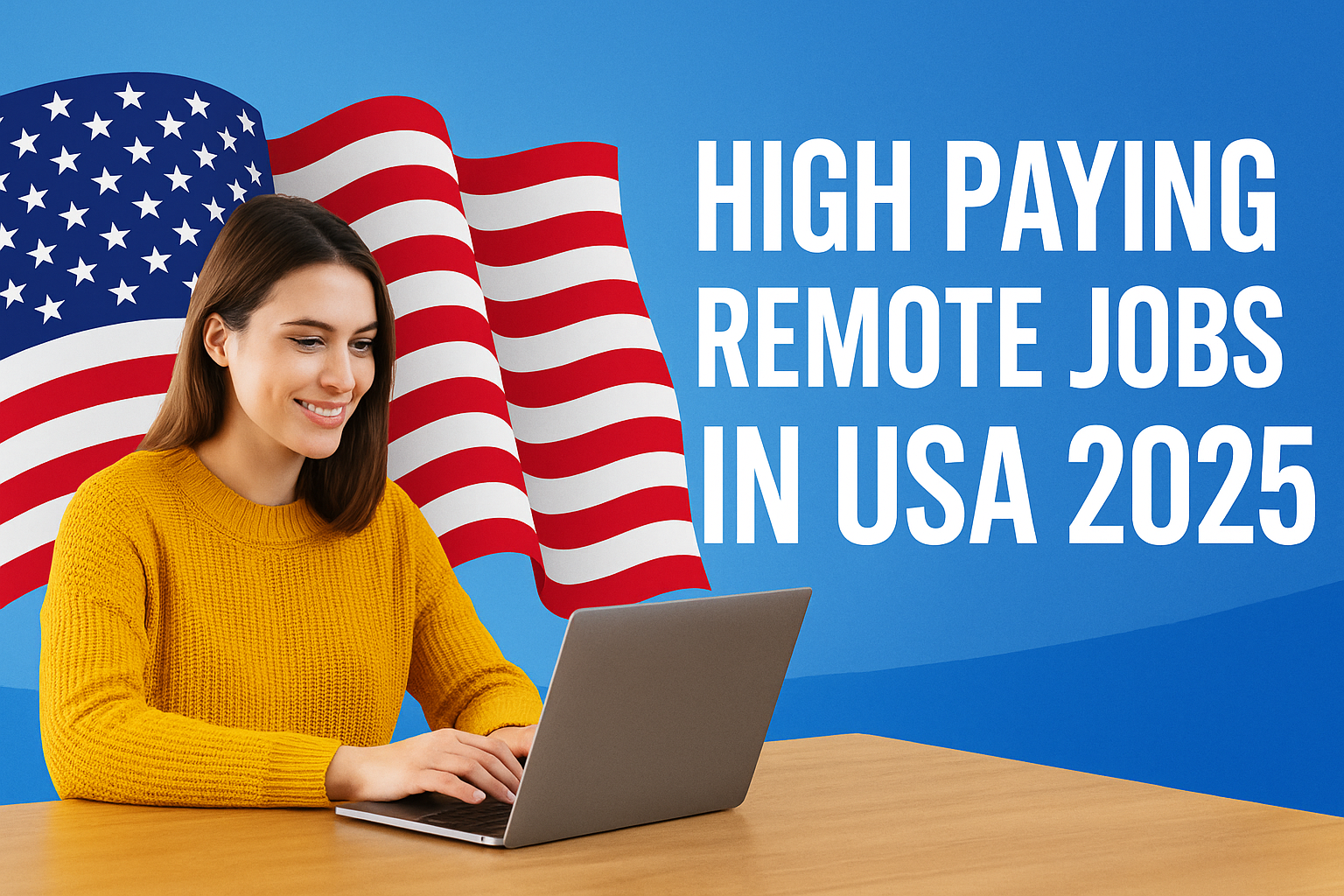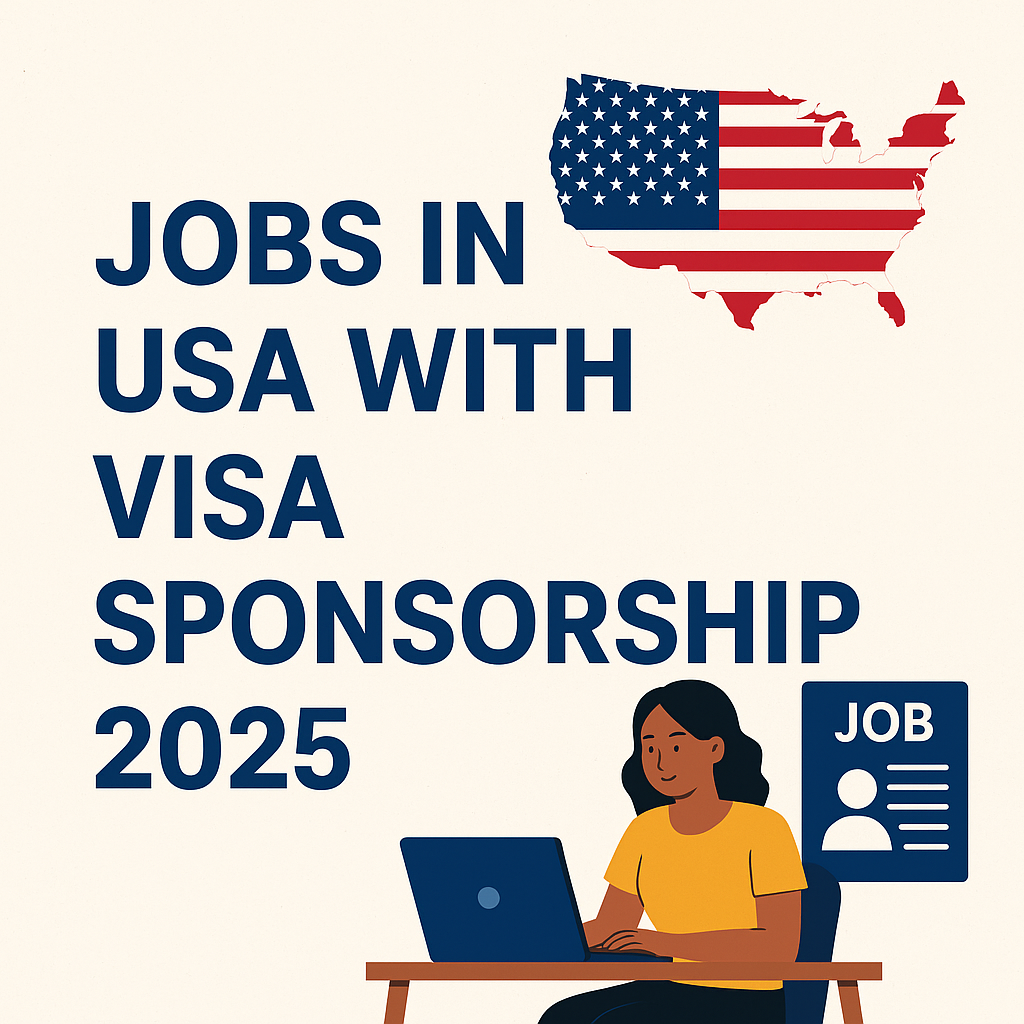Owning a small business in the USA comes with both opportunity and responsibility. Entrepreneurs dream of growing their companies, reaching more customers, and creating jobs, but many find themselves facing the same obstacle funding. Banks often require collateral for loans, and interest rates can make repayment difficult. This is where small business grants in USA become a lifeline.
Unlike loans, grants are financial awards that do not need to be repaid. They are offered by the federal government, state agencies, private companies, and nonprofit organizations. In 2025, these programs remain essential for small businesses, especially for startups, women-owned enterprises, and minority-led companies. Whether you are launching a new idea, expanding operations, or supporting your community, applying for grants can give your business the financial boost it needs.
In this first part, we’ll focus on federal-level grant opportunities the largest and most reliable sources of startup funding USA and discuss who qualifies to apply.
Why Small Business Grants Are Important in 2025
Small businesses form the backbone of the American economy, employing nearly half of the workforce. Grants provide several key benefits to these businesses:
No repayment burden: Unlike loans, grant money does not need to be paid back.
Encourages innovation: Federal grants often fund businesses working on cutting-edge research, technology, or solutions.
Supports underrepresented groups: Programs exist specifically for women, minorities, and disadvantaged business owners.
Economic stability: Grants help local businesses create jobs, which boosts community development.
As we move through 2025, inflation, supply chain costs, and rising interest rates make grants more appealing than ever.
Top Federal Small Business Grants in USA
Federal programs are among the most competitive but also the most rewarding. Here are the main ones every entrepreneur should know about:
1. Small Business Innovation Research (SBIR) Program
The SBIR program funds research and development projects with strong potential for commercialization. It is one of the most important sources of startup funding USA for technology-driven companies.
Purpose: To encourage innovation in science and technology.
Eligibility: US-based for-profit small businesses with fewer than 500 employees. The principal investigator must work primarily for the small business.
Funding Amount: Phase I awards usually range from $50,000 to $250,000. Phase II can reach up to $1 million.
Application Process: Applications are submitted through participating federal agencies such as the Department of Defense or the National Science Foundation.
Deadline: Varies depending on the agency’s schedule.
Official Website: www.sbir.gov
Example: A small biotech company in Boston used SBIR funding to test a new medical device. The grant allowed them to complete early trials, which later attracted investors.
2. Small Business Technology Transfer (STTR) Program
Similar to SBIR, the STTR program also funds research and development but requires collaboration between small businesses and nonprofit research institutions such as universities.
Purpose: To transfer scientific and technological innovations from labs to the marketplace.
Eligibility: Small businesses must partner with a research institution.
Funding Amount: Phase I typically offers $50,000–$250,000, while Phase II can provide several million dollars depending on the project.
Application Process: Proposals are submitted through federal agencies, just like SBIR.
Deadline: Varies by agency.
Official Website: www.sbir.gov
Example: A small IT startup in California partnered with a local university to develop cybersecurity software. With STTR funding, they built a prototype and later secured contracts with private companies.
3. Grants.gov
Grants.gov is the single online portal where entrepreneurs can find federal funding opportunities. It lists thousands of open grants from across government agencies.
Purpose: To provide a central database of federal grants.
Eligibility: Varies depending on the program, but most small businesses can apply if they meet basic federal requirements.
Funding Amount: Ranges from small awards of $5,000 to large projects worth over $500,000.
Application Process: Create an account, search for grants, and submit applications online.
Deadline: Different for each grant listing.
Official Website: www.grants.gov
Tip: Entrepreneurs should check Grants.gov weekly to avoid missing opportunities.
4. Economic Development Administration (EDA) Grants
The EDA supports regional economic growth, especially in communities struggling with unemployment or industry decline.
Purpose: To stimulate economic growth in disadvantaged areas.
Eligibility: Small businesses that contribute to job creation and community development.
Funding Amount: Varies, often between $100,000 and $500,000.
Application Process: Applications go through local economic development offices.
Official Website: www.mbda.gov
Example: A small furniture manufacturing business in Ohio received an EDA grant to upgrade machinery, which allowed them to hire more workers and expand production.
5. Women’s Business Grants USA – Amber Grant for Women
The Amber Grant helps women entrepreneurs start and grow businesses.
Eligibility: Women over 18 with a US-based business idea or company.
Funding Amount: Monthly $10,000 grants plus a $25,000 annual award.
Deadline: Monthly application cycles.
Official Website: www.womensnet.net
6. National Association for the Self-Employed (NASE) Growth Grants
These grants are for self-employed individuals and micro-business owners.
Eligibility: NASE members in good standing.
Funding Amount: Up to $4,000.
Deadline: Quarterly cycles.
Official Website: www.nase.org
7. State and Local Business Grants
Many states and local governments provide grants to support community-based businesses. Examples include:
- California Small Business COVID-19 Relief Grant
- Texas Workforce Development Grants
- New York State Minority and Women-Owned Business Program
- Check your state’s economic development website for details.
General Eligibility for Federal Small Business Grants
While each program has its own requirements, most federal grants share some common eligibility rules:
Business size: Must meet the Small Business Administration (SBA) definition of a small business (typically under 500 employees).
US-based: The business must be located and operating in the United States.
Purpose-driven: Funds must be used for approved purposes such as research, technology, workforce expansion, or community development.
Compliance: Businesses must provide accurate financial records, tax information, and sometimes past performance reports.
Special categories: Women, minority, and veteran-owned businesses may get additional priority in some programs.
Eligibility Requirements for Small Business Grants
While requirements differ by program, most startup funding USA grants have common criteria:
- Business must be registered in the USA.
- Must meet size standards (under 500 employees).
- Owner must have a strong business plan.
- Priority may be given to women, minorities, or disadvantaged entrepreneurs.
- Financial statements or tax records may be required.
State and Local Small Business Grants
While federal grants are highly competitive, many small businesses find greater success at the state and local levels. These programs are designed to boost local economies and help entrepreneurs who create jobs in their communities.
1. State Economic Development Grants
Each state has an economic development office that provides funding for small businesses. These grants often focus on job creation, training, and local investment.
Example: The State of California runs several grant programs for technology startups and minority-owned businesses.
Example: New York offers funding for small manufacturers through its Empire State Development program.
To apply, check your state’s official economic development website.
2. Local Government Grants
Counties and city governments also provide financial support to small businesses. These are usually smaller in amount but easier to obtain.
Example: The City of Chicago offers Small Business Improvement Funds to help entrepreneurs with renovations and equipment.
Example: Austin, Texas has innovation grants for tech startups and green energy companies.
These grants often focus on local impact, so applicants should highlight how their business benefits the community.
Private and Nonprofit Business Grants
Beyond government funding, many corporations and nonprofit organizations support entrepreneurs through grant programs. These can be excellent alternatives for businesses that don’t qualify for federal grants.
1. FedEx Small Business Grant Contest
One of the most popular competitions for small businesses in the USA.
Eligibility: Open to US-based small businesses with a unique story.
Funding Amount: Winners can receive up to $30,000 in cash, plus FedEx credits.
Deadline: Applications open early each year.
Website: www.fedex.com
2. Visa Everywhere Initiative
Visa supports startups that provide innovative solutions in finance, technology, or payments.
Eligibility: Open to startups with creative financial technology solutions.
Funding Amount: Prizes range from $10,000 to $50,000.
Website: www.visa.com
3. Comcast RISE Program
This program supports small businesses owned by women and minorities through grants, marketing support, and technology tools.
Eligibility: Minority- or women-owned businesses in the US.
Funding Amount: Cash grants up to $10,000 plus free digital tools.
Website: www.comcastrise.com
4. Hello Alice Small Business Grants
Hello Alice partners with various organizations to provide small grants to entrepreneurs.
Eligibility: Open to US small businesses in all industries.
Funding Amount: Typically $5,000–$25,000.
Website: www.helloalice.com
Women’s Business Grants USA
Women entrepreneurs continue to face unique challenges in accessing capital. Thankfully, there are dedicated programs offering women’s business grants USA.
1. Amber Grant for Women
- Funding Amount: $10,000 awarded monthly, plus a $25,000 annual award.
- Eligibility: Women over 18 with a US-based business.
- Website: www.womensnet.net
2. Cartier Women’s Initiative
- Funding Amount: $30,000–$100,000 to women leading impactful businesses.
- Eligibility: Women-owned and impact-driven businesses.
- Website: www.cartierwomensinitiative.com
3. Tory Burch Foundation Fellowship
- Funding Amount: $5,000 plus one year of mentorship and networking support.
- Eligibility: US-based women entrepreneurs.
- Website: www.toryburchfoundation.org
Minority Business Grants USA
Diversity in entrepreneurship is vital to economic growth. Several programs specifically support minority business grants USA.
1. Minority Business Development Agency (MBDA) Grants
- Funding Amount: $50,000–$400,000
- Eligibility: Minority-owned businesses across industries.
- Website: www.mbda.gov
2. NMSDC Business Consortium Fund
- Funding Amount: Ranges from $25,000–$250,000 for certified minority-owned businesses.
- Eligibility: Must be a certified minority supplier.
- Website: www.nmsdc.org
3. Coalition to Back Black Businesses
- Funding Amount: $5,000 initial grants, with follow-up grants up to $25,000.
- Eligibility: Black-owned small businesses in underserved communities.
- Website: www.webackblackbusinesses.com
Application Deadlines for 2025
SBIR/STTR Programs: Deadlines vary by federal agency but usually fall between January and June.
Amber Grant: Monthly deadlines throughout 2025.
MBDA Grants: Typically announced in spring and close in summer.
State Grants: Deadlines differ based on region.
Step-by-Step: How to Apply for Small Business Grants in USA
Step 1: Identify the Right Grant
Research options on Grants.gov or through organizations like MBDA and NASE.
Step 2: Prepare Business Documents
- Business license or registration
- Tax ID number
- Financial statements
- Business plan
Step 3: Write a Strong Proposal
Explain your goals, community impact, and how funds will be used.
Step 4: Submit Before the Deadline
Use the official grant portal and keep copies of all submissions.
Step 5: Follow Up
Agencies may contact you for interviews or more documents.
Real-Life Success Stories of Grant Winners
Stories from entrepreneurs who have successfully applied for grants can inspire others to take action.
1. Maria’s Journey – A Minority Business Owner
Maria, a Latina entrepreneur from Texas, dreamed of expanding her family-owned catering service. She applied for an MBDA grant in 2023. With $75,000 in funding, she purchased new kitchen equipment, hired more staff, and began offering catering for large corporate events. Within one year, her revenue doubled, and she opened a second location. Her story shows how minority business grants USA can transform small community businesses into thriving enterprises.
2. Jessica’s Success – Women-Owned Business Grant
Jessica, a bakery owner in Chicago, was awarded the Amber Grant in 2024. With $10,000 in funding, she upgraded her kitchen, invested in marketing, and added new product lines. The following year, she applied for the annual $25,000 award and won again. Her business now supplies pastries to hotels and cafes across the city. Jessica credits the grant not only for the financial support but also for giving her confidence to expand.
3. Tech Startup Growth – SBIR Funding
A small tech startup in Boston received Phase I SBIR funding of $150,000 to develop an innovative software tool. After completing the project, they applied for Phase II funding and secured over $1 million. Today, they employ more than 40 people and recently signed a contract with a Fortune 500 company. For many startups, SBIR is the stepping stone to global recognition.
Common Mistakes Entrepreneurs Make
While applying for grants, many small business owners make errors that cost them opportunities. Some of the most common mistakes include:
Missing Deadlines – Grants often have strict closing dates. Late applications are not considered.
Incomplete Applications – Leaving out documents like tax forms or financial records can disqualify you immediately.
Weak Business Plan – A vague plan without clear financial projections or community impact reduces your chances.
Not Following Instructions – Each grant provider has unique requirements. Ignoring guidelines is one of the fastest ways to be rejected.
Copy-Paste Applications – Using the same proposal for every grant without tailoring it to the program’s mission lowers credibility.
Why Planning Early Matters
Applying for small business grants in USA is competitive, and preparation makes the difference between success and rejection. Planning early allows you to:
- Gather strong recommendation letters.
- Improve financial statements.
- Tailor each application to match the grant’s goals.
- Schedule time for revisions before submission.
- Avoid the stress of last-minute deadlines.
Starting the process at least 6–9 months before the deadline improves your chances significantly.
Frequently Asked Questions (FAQs)
1. Do small business grants have to be repaid?
No, grants are financial awards that do not require repayment as long as they are used for approved purposes.
2. Can startups apply for grants?
Yes, programs like SBIR, STTR, and state-level innovation grants are specifically designed for startups.
3. Are grants only for tech businesses?
No. While many federal grants focus on technology, there are grants for restaurants, retail, services, and manufacturing.
4. How do women entrepreneurs find grants?
Women can apply for programs like the Amber Grant, Tory Burch Foundation Fellowship, and Cartier Women’s Initiative.
5. Are there grants for minority-owned businesses?
Yes. The MBDA and the Coalition to Back Black Businesses provide strong support for minority entrepreneurs.
6. How long does it take to get a grant?
It depends. Some programs notify winners within weeks, while larger federal grants may take months.
7. Can I apply for multiple grants at once?
Yes, as long as you meet eligibility requirements. In fact, many successful entrepreneurs apply for multiple opportunities.
8. What happens if I misuse the funds?
Using grant money for unapproved purposes can result in losing the funding and facing penalties. Always follow guidelines strictly.
9. Are grants taxable income?
Yes, in most cases, grant funds are taxable. Always consult with a tax advisor to stay compliant.
10. How do I increase my chances of winning?
Have a strong
Conclusion
Small business grants remain one of the best ways to secure funding in 2025 without taking on debt. With opportunities at the federal, state, private, and nonprofit levels, there are programs tailored for startups, women, and minority-owned businesses.
The key to success is knowing where to look, applying early, and presenting a strong business plan. Entrepreneurs who take the time to prepare well are more likely to win grants that transform their businesses and communities.



